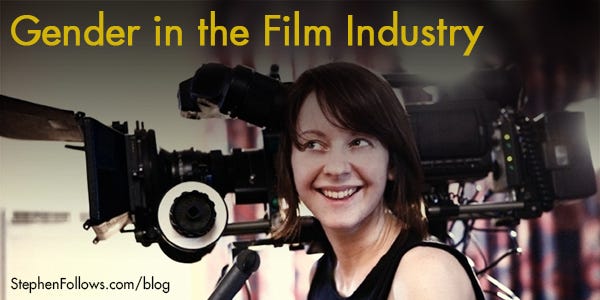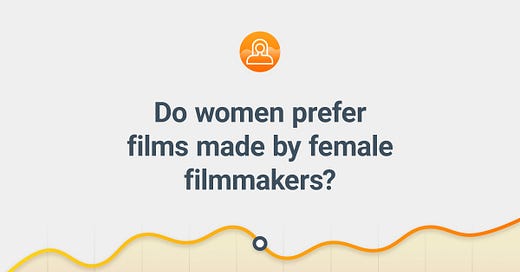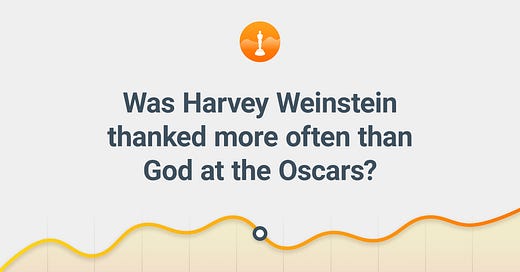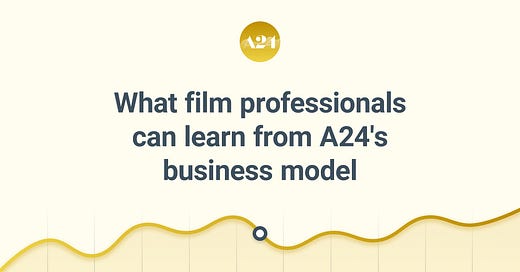
Do women prefer films made by female filmmakers?

This is the second of a three part series on gender in the film industry. The first article was published on Monday and looked at new data I’ve gathered for the global film business. The third article will be published on Friday and is a collation of all the film gender studies I could find.
The blog articles cannot cover all of the information I have gathered so I am creating a PDF report that includes all the gender studies and data. If you want to receive the full 30 page report then please join my free mailing list via the box to the right and I’ll send you the PDF once it’s ready. The report will contain…
New data on gender within the global film business
New analysis of existing data on film audiences (see below)
All the existing studies I could find on gender within the film industry, in the UK and globally.
Today we delve into the world of gender within film audiences. In summary…
The average person in the UK visits the cinema 2.7 times a year
Over the past decade, the films with the highest percentage of men in the audience were United 93, V For Vendetta and Captain America.
The films with the highest percentage of women in the audience were Penelope, Jane Eyre and Wild Child.
All of the films that were most popular with men were written and directed by men
42% of the films that were most popular with women were written by women.
The films with the highest proportion of men in the audience were Action films
Does gender equality matter for film audiences?
There are many reasons why the under-representation of women in the film industry could been seen as a problem. These include missing out on the benefits of meritocratic hiring policies, fewer role models for aspiring creatives, reduced female perspective in stories/characters and of course justice/equality/fair play. I wanted to explore the effect that an overly-male industry has on the types of films being made. So let's take a little journey....
Do men and women go to the cinema in equal numbers?
If we start at the beginning, we should note that the UK population is 51% female and that the average person in the UK visits the cinema 2.7 times a year (presumably that third film is very bad, hence why they only made it 70% of the way through).
When we look at people who attend the cinema at least once a year we don't see any difference between genders. Those who visit at least once a month are slightly more likely to be male, but we're only talking about a few percentage points.
Do men and women watch the same films?
The BFI regularly carry out exit polls on new film releases to discover more about who is watching films in UK cinemas. Taking this data between 2003-2012, I have been able to build up a list of the films with the highest proportion of men in the audience and the equivalent for women. This gives us a league table of sorts, revealing the 'Most Male' and 'Most Female' films of the past decade.
Films with the 'Most Male' Audience in UK cinemas 2003-12
[table id=2 /]
Films with the 'Most Female' Audience in UK cinemas 2003-12
[table id=3 /]
What gender are the filmmakers behind those movies?
Once I had complied these league tables I researched who were the key filmmakers behind these 40 movies. The results tell a clear story...
The 'Most Male' films are written and directed exclusively by men, four out of five of the producers are male and three quarters of the principal cast (i.e. top seven names) are also men. In total, 83% of the people involved with these films were men.
However, the pattern is not the same for women. While there are far more female filmmakers in the 'Most Female' chart, men are still the majority at 54%. The only place where women outnumber men is in the principal cast. It should be noted that 42% of the writers for the 'Most Female' chart are women, which is way above the UK average of 12% for all films.
The Genres Men and Women Prefer
Using the audience data above we can see how popular different genres are with each gender. The pie chart below relates to the films in the top 20 of my 'Most Male' and 'Most Female' league tables, which has been calculated from all films on wide release in UK cinemas between 2003 and 2012.
Next Up - A World of Gender Research
On Friday I will be publishing the result of my research on the topic, with a collation of all the studies on gender I could find around the web.
Epilogue
I have been ablely supported in this study by Alyssa Thorne to whom I am very grateful. While I have been crunching numbers she has been contacting film commissions, industry bodies and pressure groups for background research. The source of my journey into gender within film audiences is based on Exit Polls carried out by BFI's Research and Statistics Unit.











